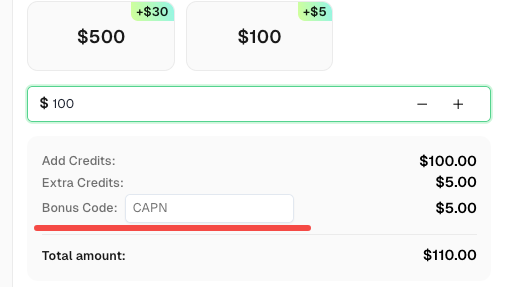Web Scraping vs API: Collect data with web scraping and API

Rajinder Singh
Deep Learning Researcher
29-Oct-2025
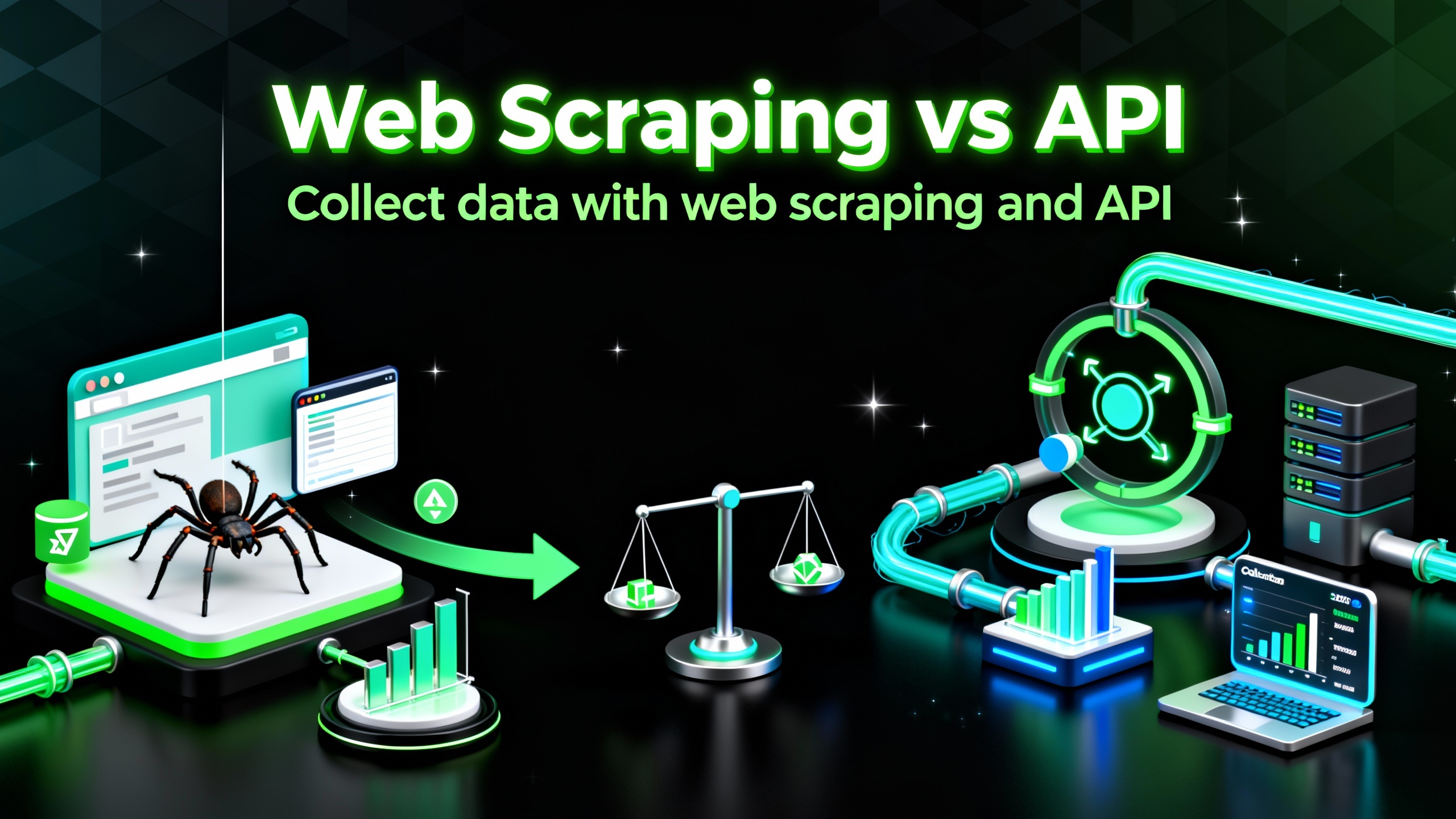
In today's data-driven world, the ability to collect and analyze vast amounts of information is crucial. When it comes to gathering data from the web, two popular methods are web scraping and APIs. Both approaches offer unique ways to access data, but understanding their differences and choosing the right method can greatly impact the success of data retrieval. In this article, we will explore what web scraping and APIs are, how they work, and compare them comprehensively.
Article Outline
- What is Web Scraping?
- What is an API?
- Collecting Data with Web Scraping and APIs
- Web Scraping vs API: How do they work?
- API vs Web Scraping: Comprehensive Comparison
Redeem Your CapSolver Bonus Code
Don’t miss the chance to further optimize your operations! Use the bonus code CAPN when topping up your CapSolver account and receive an extra 5% bonus on each recharge, with no limits. Visit the CapSolver Dashboard to redeem your bonus now!
What is Web Scraping?
Web scraping, also known as web data extraction, is the process of automatically extracting data from websites. It involves programmatically retrieving and parsing HTML or other structured data from web pages. By analyzing the HTML structure and using techniques like XPath or CSS selectors, specific data elements can be extracted, such as text, images, links, or tables. Web scraping enables you to gather data from multiple websites and extract valuable insights for various purposes.
What is an API?
API, short for Application Programming Interface, is a set of rules and protocols that allows different software applications to communicate and share data with each other. APIs act as intermediaries, enabling developers to access and retrieve specific data or perform certain functions from a service or platform. APIs provide predefined endpoints and data formats, making it easier for developers to integrate external data into their applications or systems without the need for parsing HTML or dealing with web page structures.
Collecting Data with Web Scraping and APIs:
Both web scraping and APIs serve as effective means of collecting data, but they differ in their approaches.
Web scraping involves writing code to mimic human interaction with web pages. It accesses the HTML structure of a website, extracts the desired data, and saves it for further analysis. Web scraping allows for more flexibility and the extraction of unstructured or semi-structured data. It can be used to retrieve data from websites that do not provide APIs or require authentication.
On the other hand, APIs provide a structured and streamlined way to access data. Instead of parsing HTML, APIs offer predefined endpoints and data formats, making data retrieval more efficient and consistent. APIs are commonly used when accessing data from platforms or services that provide API access. They often require authentication and provide data in a structured format such as JSON or XML.
Web Scraping vs API: How do they work?
The approach to scraping depends on the target site you want to retrieve data from. There is no universal strategy, and each site requires different logic and measures. Suppose you want to extract data from a static site, which is the most common scraping scenario. The technical process you need to follow involves the following steps:
- Get the HTML content of the target page: Use an HTTP client to download the HTML document associated with the page you want to scrape.
- Parse the HTML: Feed the downloaded content to an HTML parser.
- Apply data extraction logic: Use the features offered by the parser to collect data, such as text, images, or videos, from the HTML elements on the page.
- Repeat the process on other pages: Apply the above steps to other pages programmatically discovered through web crawling to gather all the required data.
- Export the collected data: Preprocess the scraped data and export it to CSV or JSON files.
On the other hand, APIs provide standardized access to data. Regardless of the provider site, the approach to retrieving information through an API remains similar:
- Get an API key: Sign up for free or purchase a subscription to obtain an API key.
- Perform API requests with your key: Use an HTTP client to make authenticated API requests using your key and retrieve data in a semi-structured format, typically JSON.
- Store the data: Preprocess the retrieved data and store it in a database or export it to human-readable files.
The main similarity between web scraping and API access is that both aim to retrieve data online, while the main difference lies in the actors involved. In web scraping, the effort lies on the web scraper, which needs to be built according to specific data extraction requirements and goals. In the case of APIs, most of the work is done by the API provider.
API vs Web Scraping: A Comprehensive Comparison
While both web scraping and APIs are valuable tools for data collection, they have distinct advantages and disadvantages:
Advantages of Web Scraping:
- Access to publicly available data from any website
- No need for official authorization or API keys
- Flexibility to extract data in any desired format
Disadvantages of Web Scraping:
- Potential legal and ethical concerns (violating terms of service)
- Risk of website changes breaking scrapers
- Difficulty in scaling and maintaining scrapers for large datasets
Advantages of APIs:
- Officially sanctioned and reliable access to data
- Documented and structured data formats
- Potentially faster and more efficient data retrieval
- Additional features like authentication and rate limiting
Disadvantages of APIs:
- Limited to data sources that offer APIs
- Potential costs or usage restrictions
- Dependence on the API provider's uptime and maintenance
| Aspect | Web Scraping | API |
|---|---|---|
| Accessibility | Any public website | Limited to platforms offering API |
| Flexibility | High – can target any page element | Low – restricted to API endpoints |
| Reliability | Medium – fragile if site changes | High – stable if API maintained |
| Speed | Medium – depends on scraping logic | High – optimized endpoints |
| Legal/Ethical Risk | Higher – may violate ToS | Lower – officially authorized |
| Setup Complexity | Higher – parsing and coding needed | Lower – standardized requests |
| Data Structure | Can be unstructured | Structured and documented |
Choosing the Right Approach for Your Data Retrieval Goals The choice between web scraping and APIs depends on your specific data needs, the availability of APIs, and the legal and ethical considerations involved.
If the data you require is publicly available on websites, and no official API exists, web scraping may be the best option. However, it's essential to consider the terms of service and potential legal implications before proceeding.
If an official API is available, it is generally recommended to use it, as it provides a more reliable and structured way to access data. APIs also offer additional features and functionalities that can simplify data retrieval and integration.
In some cases, a combination of web scraping and APIs may be the most effective approach. For example, you could use web scraping to gather data not available through APIs and then supplement it with data retrieved from official APIs.
When dealing with websites that employ advanced security measures like CAPTCHAs, it's crucial to have a reliable solution. CapSolver , a leading CAPTCHA solving service, provides APIs and tools to programmatically solve various types of CAPTCHAs, enabling seamless integration with your data collection workflows, whether you're using web scraping or APIs.
Conclusion
In conclusion, both web scraping and APIs are powerful tools for data collection, each with its own strengths and limitations. By understanding the differences and considering your specific requirements, you can make an informed decision on the best approach to achieve your data retrieval goals efficiently and compliantly.
FAQs
Q1: Can I scrape data if an API exists?
- Technically yes, but it is recommended to use the API for reliability, speed, and compliance.
Q2: Are web scraping and APIs legal?
- APIs are generally authorized.
- Web scraping must comply with website terms of service and privacy laws.
Q3: Can CAPTCHAs block web scraping?
- Yes, advanced anti-bot measures like CAPTCHAs can prevent scraping. Services like CapSolver help bypass CAPTCHAs programmatically for smoother data collection.
Q4: Which method is better for large-scale data collection?
- APIs are usually better for scalability due to structured data and rate-limiting features.
- Scraping can be scaled but requires robust error handling and maintenance.
Compliance Disclaimer: The information provided on this blog is for informational purposes only. CapSolver is committed to compliance with all applicable laws and regulations. The use of the CapSolver network for illegal, fraudulent, or abusive activities is strictly prohibited and will be investigated. Our captcha-solving solutions enhance user experience while ensuring 100% compliance in helping solve captcha difficulties during public data crawling. We encourage responsible use of our services. For more information, please visit our Terms of Service and Privacy Policy.
More
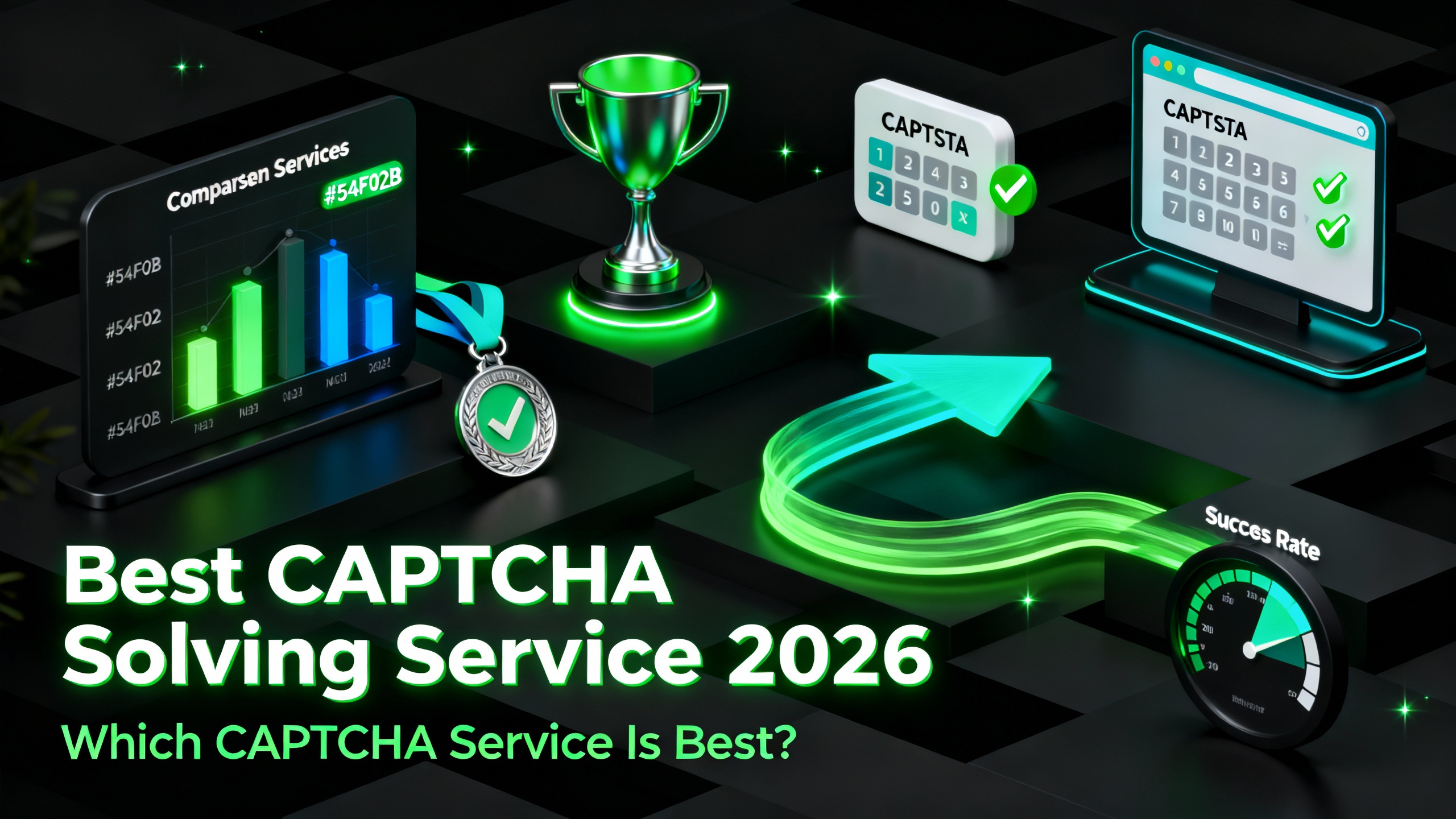
Best Captcha Solving Service 2026, Which CAPTCHA Service Is Best?
Compare the best CAPTCHA solving services for 2026. Discover CapSolver's cutting-edge AI advantage in speed, 99%+ accuracy, and compatibility with Captcha Challenge

Lucas Mitchell
30-Oct-2025
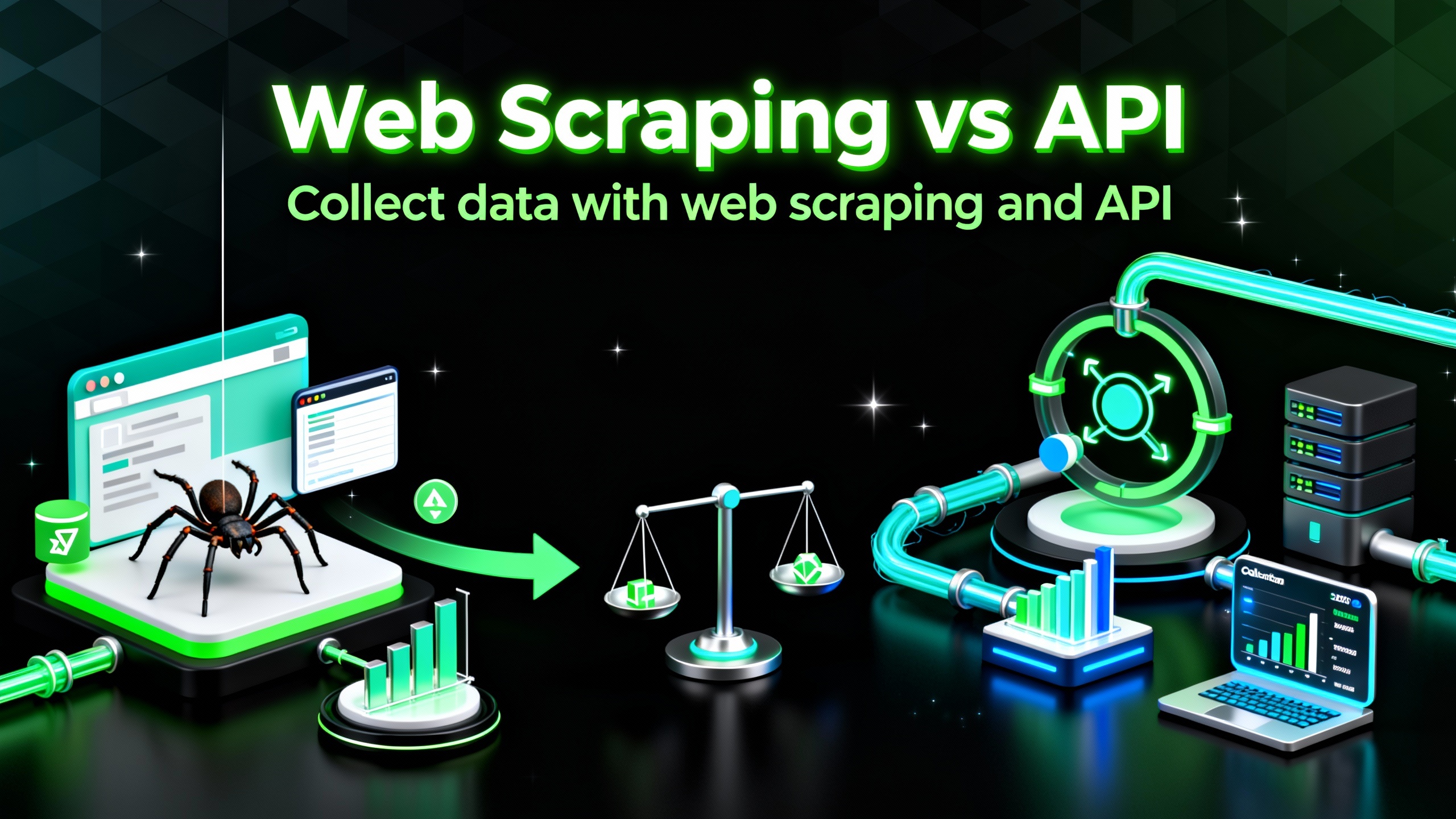
Web Scraping vs API: Collect data with web scraping and API
Learn the differences between web scraping and APIs, their pros and cons, and which method is best for collecting structured or unstructured web data efficiently.

Rajinder Singh
29-Oct-2025

Auto-Solving CAPTCHAs with Browser Extensions: A Step-by-Step Guide
Browser extensions have revolutionized the way we interact with websites, and one of their remarkable capabilities is the ability to auto-solve CAPTCHAs..

Ethan Collins
23-Oct-2025
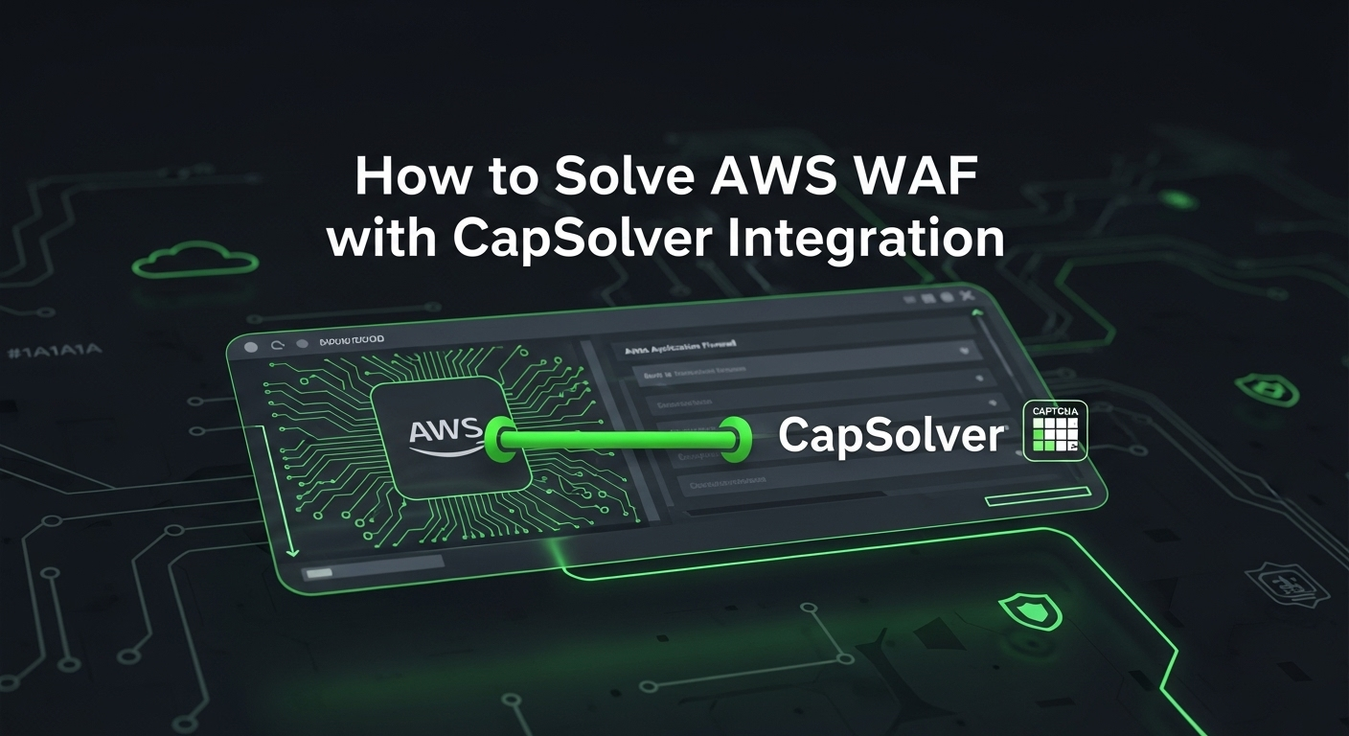
Solving AWS WAF Bot Protection: Advanced Strategies and CapSolver Integration
Discover advanced strategies for AWS WAF bot protection, including custom rules and CapSolver integration for seamless CAPTCHA solution in compliant business scenarios. Safeguard your web applications effectively.

Lucas Mitchell
23-Sep-2025
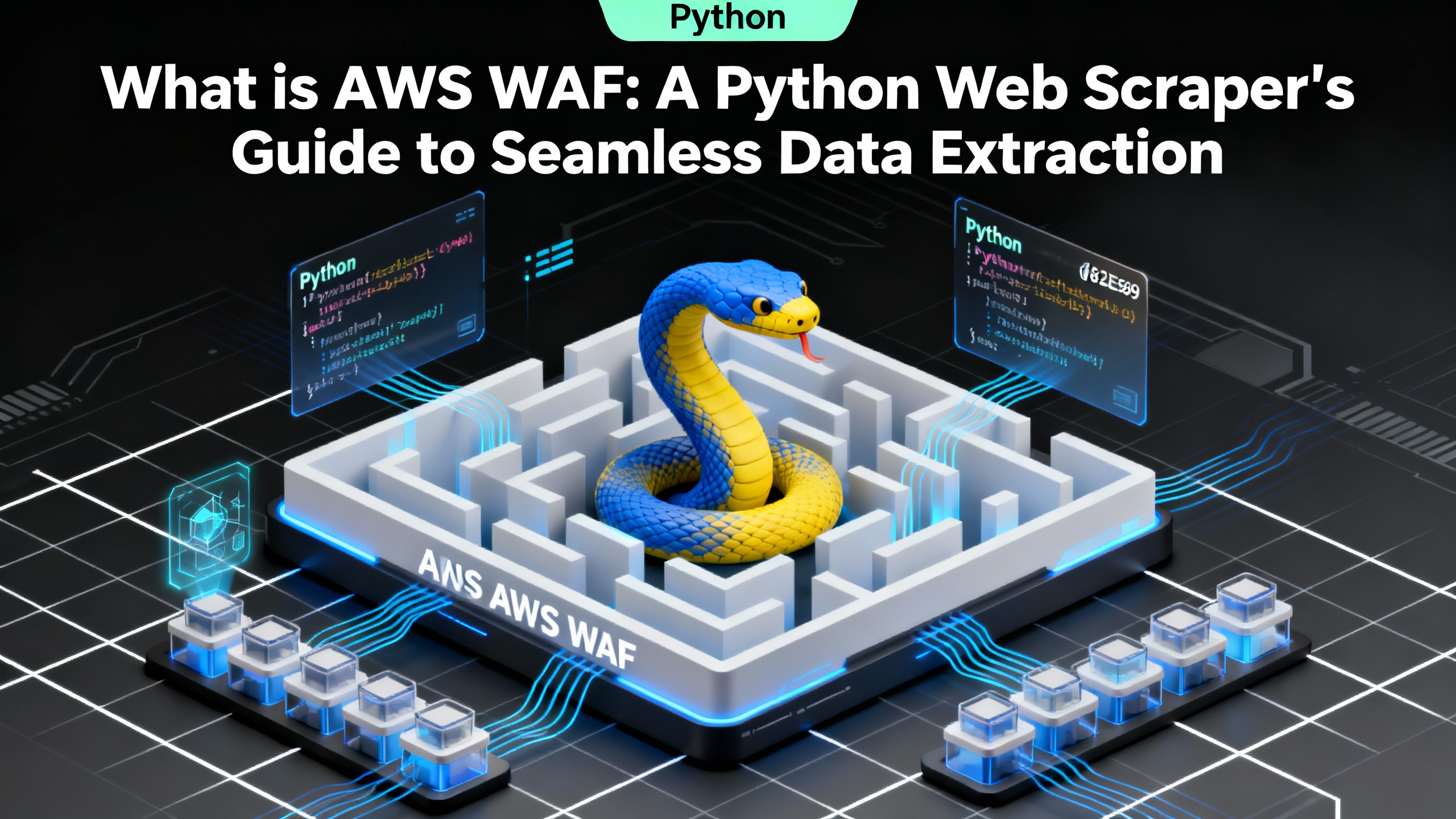
What is AWS WAF: A Python Web Scraper's Guide to Seamless Data Extraction
Learn how to effectively solve AWS WAF challenges in web scraping using Python and CapSolver. This comprehensive guide covers token-based and recognition-based solutions, advanced strategies, and code examples fo easy data extraction.

Lucas Mitchell
19-Sep-2025
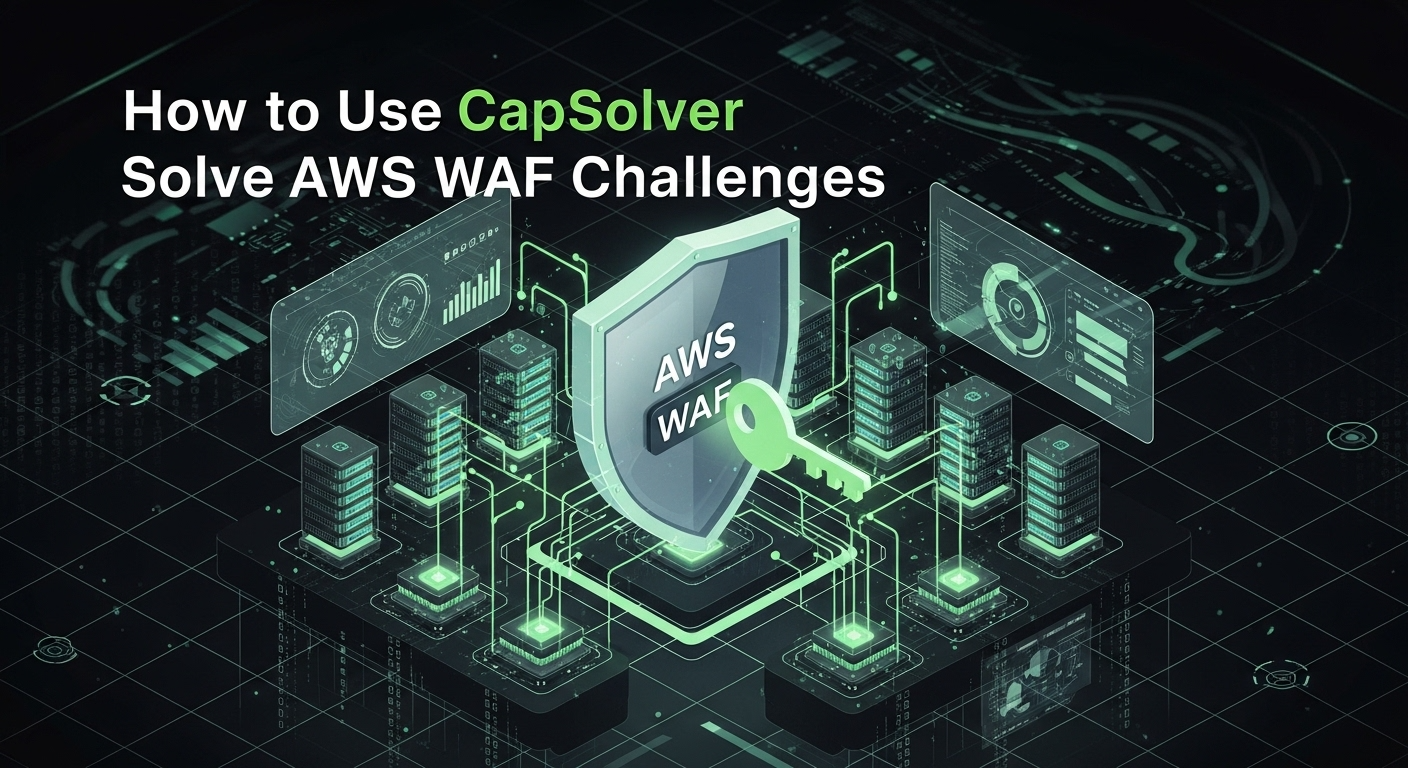
How to Solve AWS WAF Challenges with CapSolver: The Complete Guide in 2025
Master AWS WAF challenges with CapSolver in 2025. This complete guide offers 10 detailed solutions, code examples, and expert strategies for seamless web scraping and data extraction.

Lucas Mitchell
19-Sep-2025


